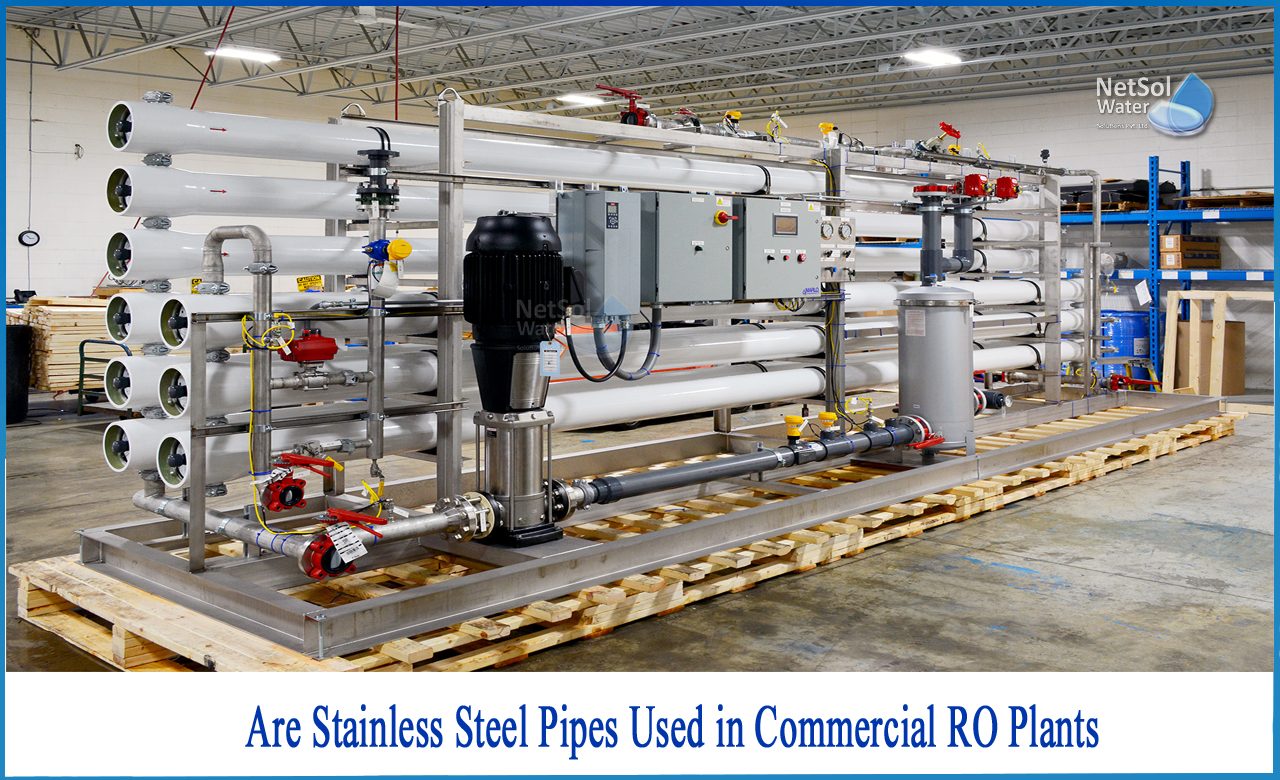Are Stainless Steel pipes used in Commercial RO Plants?
Reverse osmosis (RO) plants are used to purify a wide range of water types, including seawater. Stainless steel is ideally suited to the requirements of RO because of their great resistance to aqueous corrosion and preventing the contamination of the process by potential membrane-scaling ions. In some waterways, particularly those containing chlorides, some stainless steels are prone to pitting and crevice corrosion.
To minimize costly corrosion failures without specifying too highly alloyed and expensive material, much care must be taken while choosing the best grade of stainless steel for a certain water.
Corrosion behaviour of Stainless Steel
Stainless steel performs better in clean, moving water, with flow rates of 1.5 to 2 feet per second (0.5 to 0.6 metres per second). To decrease silt deposition in raw water, a minimum design flow of 3 ft/s (1 m/s) is recommended. Stainless steel benefits from high velocities and turbulence, which limits the performance of materials like ductile cast iron, carbon steel, and copper alloys. To handle turbulent flows, stainless steel has good erosion/corrosion resistance.
Stainless steel does not need the corrosion allowances that ductile cast iron and carbon steel do because of its low corrosion rate.
Operations and Maintenance of Stainless Steel pipes
MIC is caused by failing to drain water quickly following hydrostatic testing or allowing water to continue to stagnate in pipelines or tanks for long periods of time. Bacteria have an opportunity to form bio-mounds and grow in stagnant water, which can lead to MIC at welds when heat tint oxide is present.
The following techniques are also recommended for the operation and maintenance of stainless steel piping systems:
1: Make a plan to flush out silt and debris from horizontal raw water piping running on a regular basis.
2: Drain entirely and dry during downtime, or circulate water for one hour every day.
3: Dissolve calcium hypochlorite granules before inserting them into or onto the surface of stainless steel pipes for the initial disinfection treatment. When calcium hypochlorite granules lie on stainless steel, they disintegrate slowly and cause severe micro-pitting.
4: Proper ventilation is required to eliminate chlorine from all confined places.
Stainless steel is made up of a variety of alloys with chromium content ranging from 12 to 30%, which protects it as long as the localized concentration is greater than 12%. The benefits of stainless steel allows us to use them in RO Plants because they are less corrosive than other metals.
How can we help?
Netsol Water is a renowned water and wastewater treatment plant manufacturer based in Greater Noida. Based on client feedback and work quality, we are the most demanding organization in the industry. We have a reputation for being the top commercial RO plant, industrial RO plant, sewage treatment plant, and effluent treatment plant manufacturers. Apart from that, our USP is our round-the-clock customer service.




